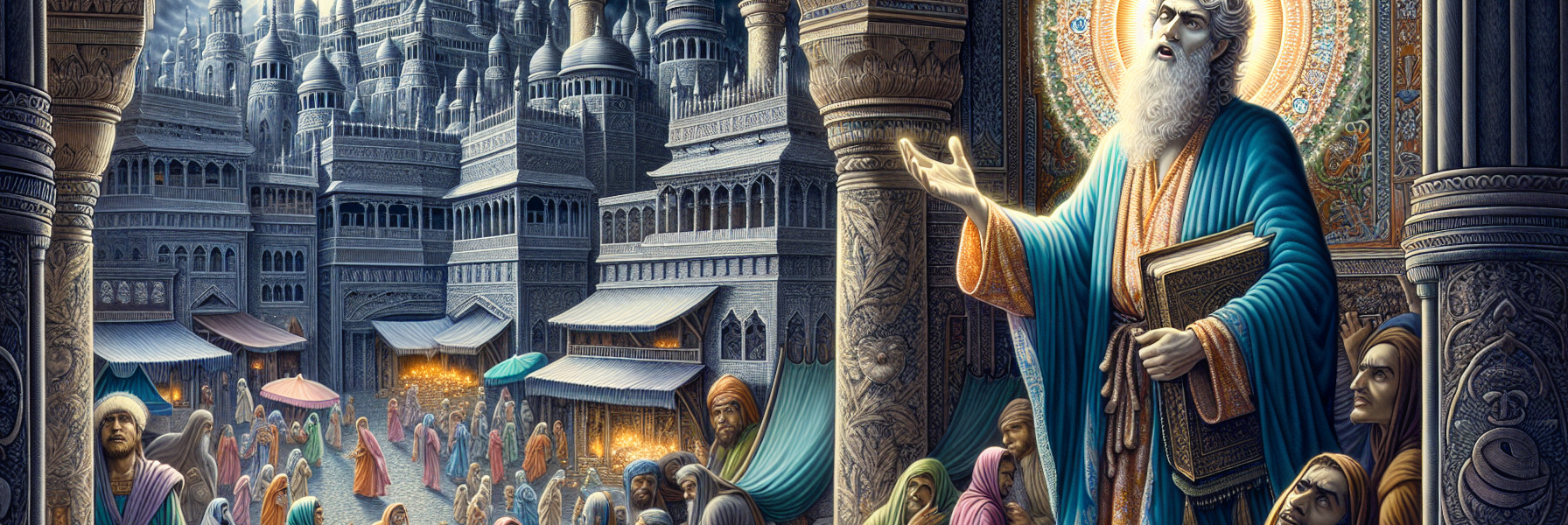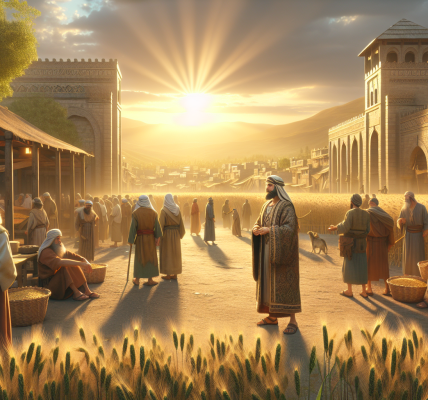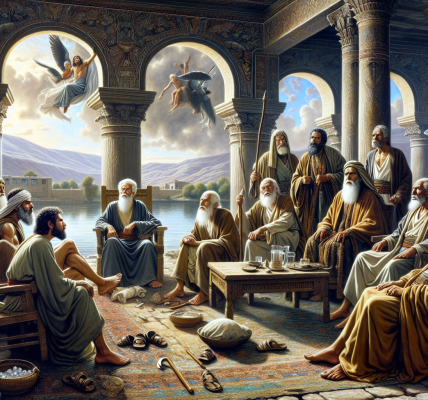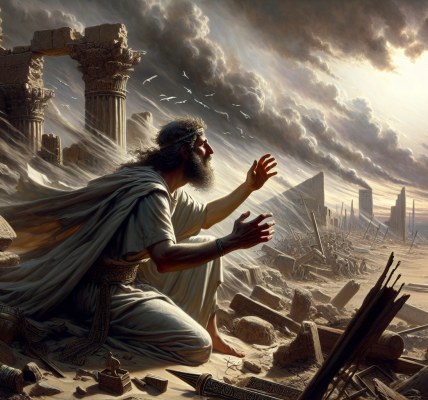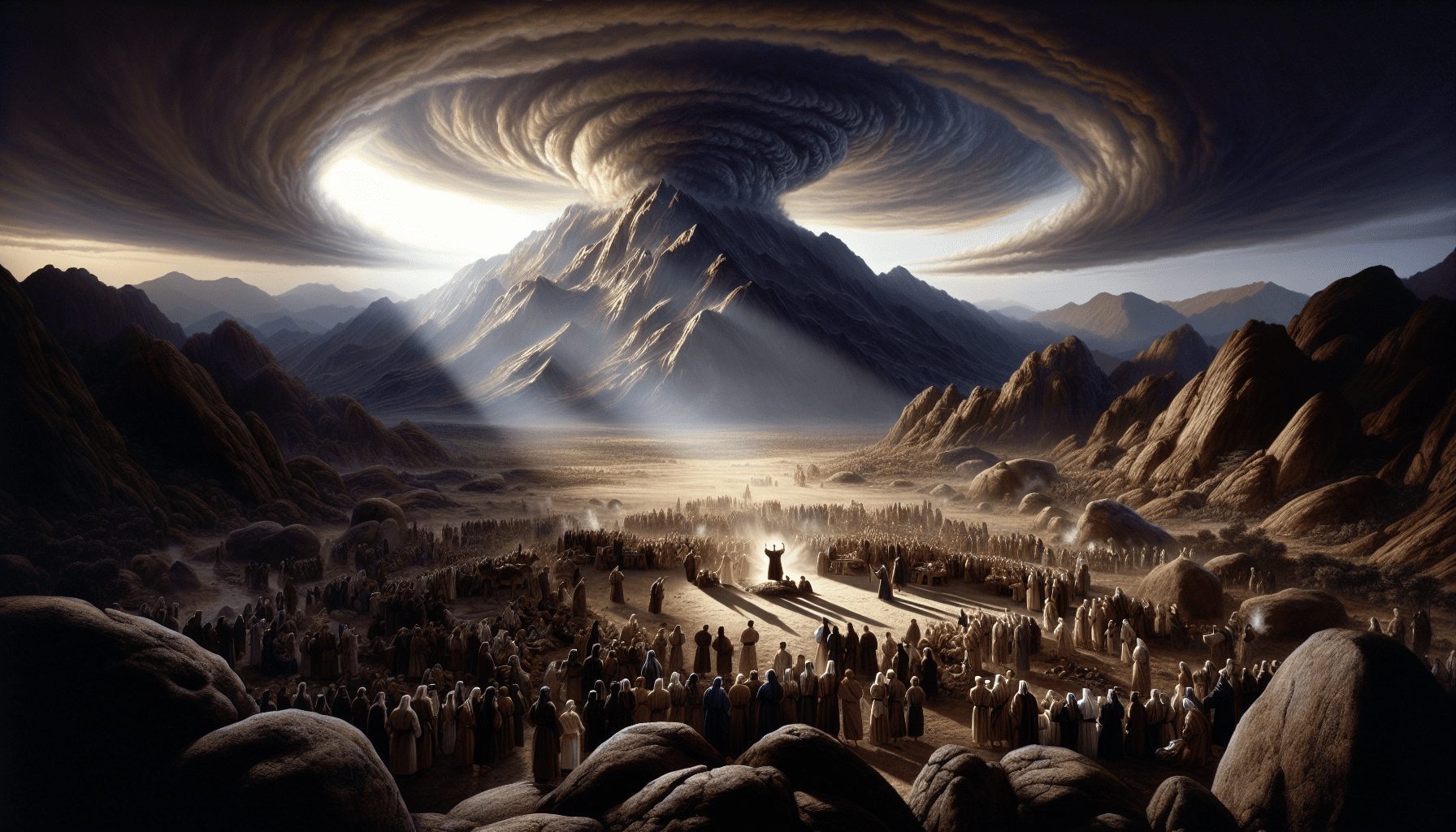**The Folly of the Wealthy and the Wisdom of the Righteous**
In the days when the kingdoms of men flourished and the hearts of many grew proud in their riches, there arose a psalmist, a man of God, who lifted his voice to declare wisdom to all who would listen. His words, inspired by the Spirit, echoed through the courts of the wealthy and the humble dwellings of the poor alike, for his message was for every soul under heaven.
The psalmist stood upon the steps of the temple, his face alight with divine fervor, and he cried out:
*”Hear this, all you peoples; listen, all who dwell in this fleeting world—both low and high, rich and poor alike! My mouth shall speak wisdom, and the meditation of my heart shall bring forth understanding.”*
The marketplace nearby bustled with merchants haggling over silver and spices, their robes fine and their purses heavy. Among them strode a man named Korah, a merchant of great renown, whose wealth was known from Damascus to Egypt. His fingers glittered with rings, and his sandals were lined with gold. He paused at the psalmist’s voice, a smirk playing upon his lips.
*”Why should I fear when evil days come, when the wicked surround me—those who trust in their wealth and boast of their great riches?”* the psalmist continued.
Korah scoffed. “What does this beggarly poet know of wealth? Let him chant his prayers while I count my gold!” His companions laughed, clapping him on the back, for they too trusted in the abundance of their treasures.
But the psalmist’s voice grew stronger, cutting through the noise of the marketplace like a trumpet blast.
*”No man can redeem the life of another, nor give to God a ransom for his soul—for the price of life is costly, and no payment is ever enough that he should live on forever and not see decay.”*
A shadow passed over Korah’s face, but he shook it off. “Enough of this talk! Death is far from me. My house is secure, my vineyards plentiful. What have I to fear?”
Yet the psalmist’s words were relentless.
*”For all can see that the wise die, that the foolish and the senseless alike perish and leave their wealth to others. Their tombs will remain their houses forever, their dwellings for endless generations, though they had named lands after themselves.”*
The crowd murmured. Some of the poor, who had long suffered under the oppression of the rich, nodded in quiet agreement. A widow clutching her child whispered, “He speaks truth. The wealthy hoard their gold, yet none of it follows them to the grave.”
Korah’s face darkened. “This is madness! My name shall endure. My sons will inherit all I have built!”
But the psalmist turned his gaze upon him, eyes filled with sorrow and truth.
*”Man, despite his riches, does not endure; he is like the beasts that perish. This is the fate of those who trust in themselves, and of their followers, who approve their sayings. Like sheep they are destined for the grave, and death will feed on them. The upright will rule over them in the morning, and their forms will decay in the grave, far from their princely mansions.”*
Korah opened his mouth to retort, but no words came. A chill ran through him, for in that moment, he saw the vanity of his pursuits. His gold could not buy another breath, his lands could not shield him from the grave.
The psalmist softened then, his voice a balm to the troubled hearts listening.
*”But God will redeem my life from the grave; He will surely take me to Himself. Do not be overawed when a man grows rich, when the splendor of his house increases; for he will take nothing with him when he dies, his splendor will not descend with him.”*
The widow bowed her head in hope, while Korah stood frozen, the weight of eternity pressing upon him. Around him, the marketplace continued its clamor, but his soul had been stirred.
As the sun dipped low, casting long shadows over the city, the psalmist finished his proclamation:
*”Though while he lived he counted himself blessed—and people praise you when you prosper—he will join the generation of his fathers, who will never see the light of life. A man who has riches without understanding is like the beasts that perish.”*
And with that, the psalmist turned and walked away, leaving behind a silence that spoke louder than his words. Some mocked, some pondered, and a few—like Korah—felt the first tremors of repentance in their hearts.
For the wisdom of God had been declared: the fleeting nature of wealth, the certainty of death, and the hope of redemption found not in gold, but in the Almighty. And those who had ears to hear took heed, storing up treasures not on earth, but in heaven.
